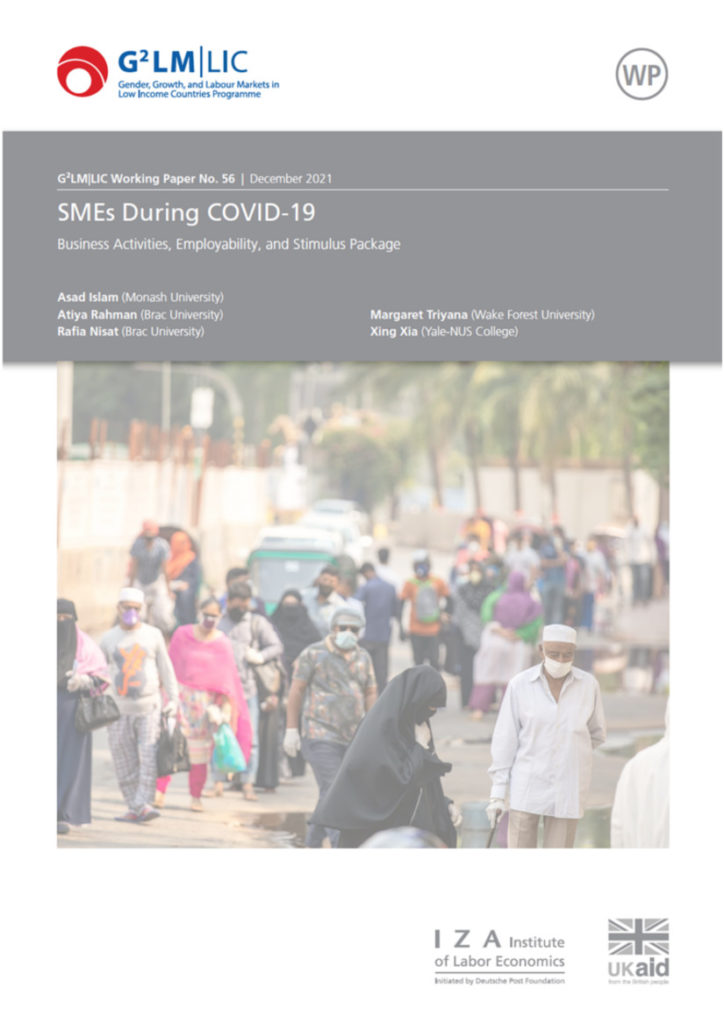The COVID-19 Pandemic has had a negative toll on the world and its economy in the past years. Although governments and countries have learned how to counteract the effects of the virus more effectively, the economic consequences of disease-induced lockdowns, among many other factors, have especially not been overcome in developing countries. To examine the effect of lockdowns on Small and Medium Enterprises (SMEs), the authors of the article thus set themselves to analyse how cottage enterprises and microenterprises in Bangladesh have coped with these measures. Hence, they undergo a large-scale panel survey of 2300 of these enterprises across the country, dividing the survey in two rounds.
Results from the first survey from mid-2020 show that, even after lockdown ended, firms still experienced a 52 per cent drop in sales. Furthermore, while most of the firms were closed during the lockdown, the survey shows that about one-third of them were still partially operating as the economy opened up and that although the government had declared packages for firms, the take-up was minimal. The second round, from January 2021, shows some improvements, as unemployment has fallen in regards to the first lockdown period, although it has not retaken its pre-pandemic level. Further, the second round also identifies that among the youth, female individuals have been hit harder than its male counterparts due to the lockdown measures. Read the detailed Working Paper here.
